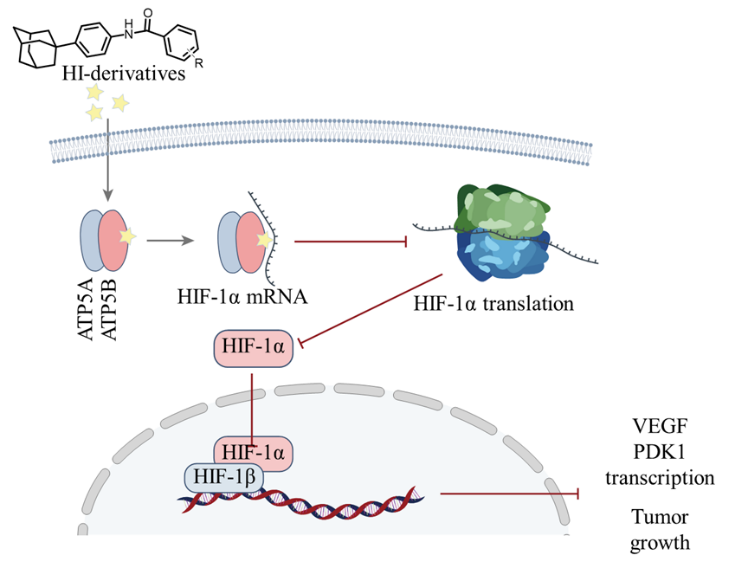
Maintenance of cellular oxygen homeostasis is essential for ensuring the normal life activities of cells. William Kaelin, Jr., Sir Peter Ratcliffe, and Gregg Semenza shared 2019 Nobel Prize in Physiology or Medicine for discovering how cells sense and adapt to oxygen availability. Hypoxia inducible factor-1α (HIF-1α) is the key transcriptional factor for adapting to hypoxia.Increased HIF-1α protein level correlates with poor prognosis in cancer patients and tumor growth is significantly slowed when HIF-1α transcriptional activity is inhibited, thus HIF-1α has been widely recognized as a promising anti-tumor target. It is challenging and meaningful to figure out the underlying biological mechanisms associated with HIF-1α and develop HIF-1α transcriptional activity inhibitors with high-efficiency and low-toxicity.
Recently, Professor Lu Zhou's research group at the School of Pharmacy, Fudan University, discovered a novel mechanism to regulate HIF-1α transcriptional activity. This work was published online in the journal Advanced Science entitled as Adamantaniline Derivatives Target ATP5B to Inhibit Translation of Hypoxia Inducible Factor-1α.

Through a high-throughput phenotypic screening assay based on a dual-luciferase reporter system, Lu Zhou’s group obtained the hit compounds with an adamantane aniline moiety inhibiting HIF-1α transcriptional activity. A series of adamantaniline derivatives with high efficiency and low toxicity were obtained through structure optimization. Protein target ATP5B was identified with the probe HI-102 by affinity-based protein profiling (ABPP). Target validation and mechanism of action studies were performed through multiple methods of knockdown, knock-in, fluorescence polarization, immunofluorescence, etc. To summarize, HI-derivatives increase HIF-1 mRNA binding to ATP5B in an F1FO-ATP synthase activity independent manner, inhibiting HIF-1 translation and transcriptional activity and, ultimately, reducing HIF-1 target gene expression and tumor progression.

Huiti Li, a Ph.D. student at the School of Pharmacy, Fudan University, and Yali Liu, a Ph.D. student at Shanghai Institute of Nutrition and Health, University of Chinese Academy of Sciences are the co-first authors of the paper. Ying Xu, an associate researcher at Shanghai Jiao Tong University School of Medicine, and Lu Zhou, a professor at Fudan University School of Pharmacy, are the corresponding authors of the paper.This work was also supported by Academician Guoqiang Chen from Renji Hospital Affiliated to Shanghai Jiao Tong University School of Medicine and Professor Yu Cao from the Ninth People's Hospital Affiliated to Shanghai Jiao Tong University School of Medicine.The work has been funded by National Key Research and Development Program of China,National Natural Science Foundation of China, Science and Technology Commission of Shanghai Municipal, and CAMS Innovation Fund for Medical Science.
The original link: https://doi.org/10.1002/advs.202301071